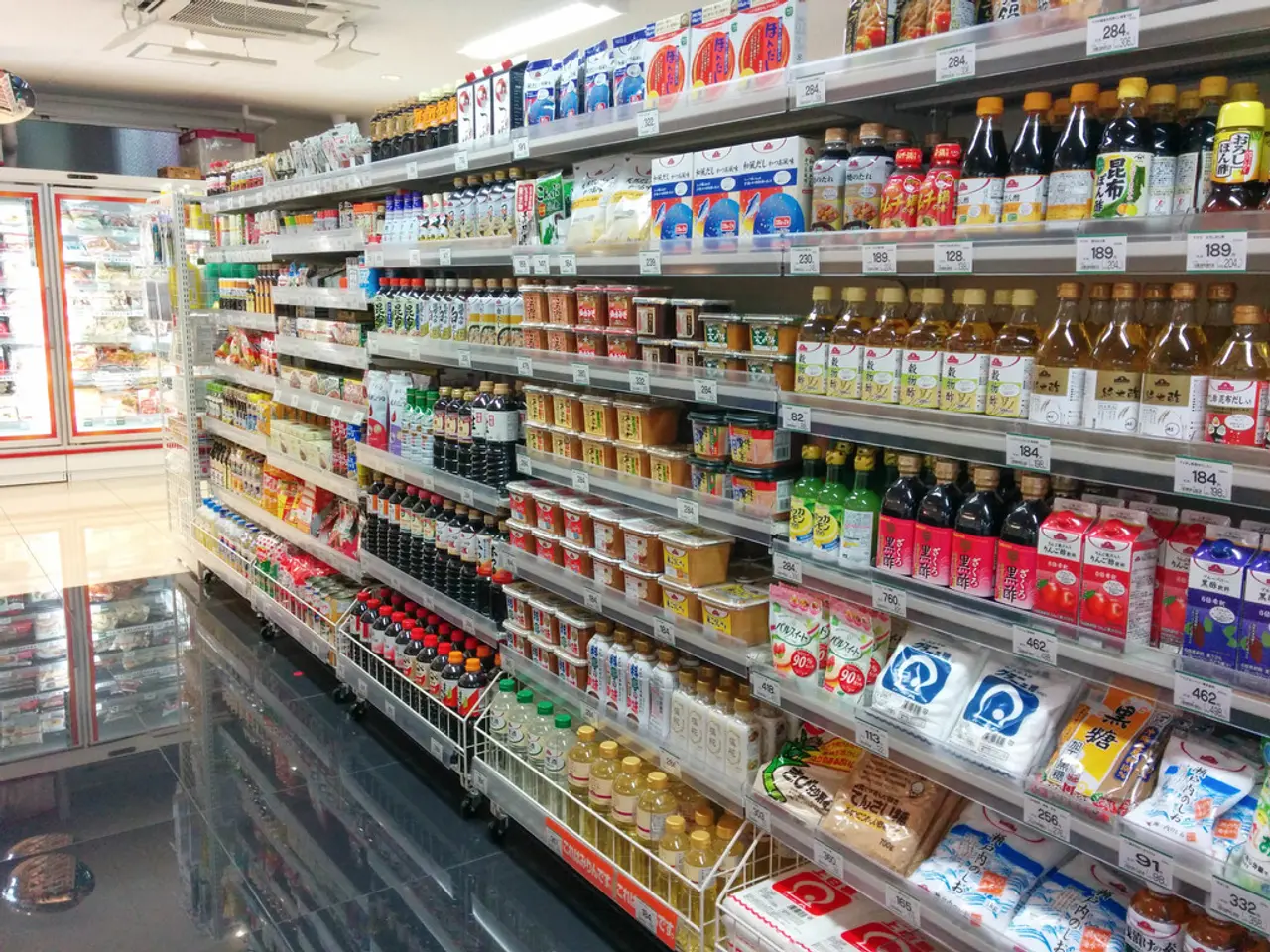Title: Fair Trade in Germany: Navigating Challenges and Opportunities
Political challenges threaten the stability of fair trade movements
In the heart of Europe, Germany's fair trade landscape is shaped by a complex interplay of political, economic, and structural factors. These influences, ranging from international trade agreements to domestic economic pressures, significantly impact the agricultural sector, particularly producers in the Global South.
Political and Economic Factors in Germany
- EU-US Trade Deal and Fair Trade Terms The recent EU-US trade deal, spearheaded by Chancellor Friedrich Merz, has raised concerns among German politicians. The agreement imposes 15% tariffs on EU exports, including agricultural goods, while granting tariff-free access to the US market for American products[1]. This asymmetric tariff structure is seen as a betrayal of fair trade principles, potentially burdening European agricultural exports and affecting producers' competitiveness.
- Germany’s Advocacy for WTO Reforms Germany, in collaboration with the EU, is advocating for reforms of the World Trade Organization (WTO) to curb industrial subsidies and promote fair competition[3]. These reforms aim to level the playing field by limiting market distortions, which can affect agricultural commodity trade globally, particularly impacting fair trade initiatives.
- Structural and Environmental Challenges Trade-induced specialization often leads to monoculture farming and the decline of agrobiodiversity[2]. This specialization, encouraged by global trade frameworks, can marginalize small-scale producers in the Global South who rely on diverse, traditional crops for their livelihoods. The environmental externalities and loss of biodiversity raise concerns about sustainable fair trade agriculture.
- Domestic Economic Pressures The global energy crisis and transition to green energy policies are increasing production costs in Europe[4]. These costs can reduce the competitiveness of German and European agricultural exports, indirectly affecting trade relationships with Global South producers.
Impact on Producers in the Global South
- Market Access and Tariff Imbalances The new EU-US trade deal could disrupt trade flows, limiting market opportunities for European agricultural goods, including fair trade-certified products, in the US. This could reduce demand for raw materials sourced from the Global South.
- Increased Pressure for Specialization and Monoculture Global trade patterns encourage specialization that often favours large-scale monoculture plantations over diversified farming systems, threatening biodiversity-based farming and fair trade principles.
- WTO Reforms as a Potential Equalizer Germany’s push for WTO reforms could help reduce distortions that often disadvantage Global South producers, improving fair trade conditions.
- Energy and Economic Pressures in Germany Higher production costs in Europe might lead German importers and consumers to seek cheaper suppliers or reduce demand for premium fair trade goods, impacting income and market stability for Global South producers.
In summary, the current political dynamics and economic pressures present a mixed outlook for fair trade in Germany. These factors can constrain market access and exacerbate structural inequalities for agricultural producers in the Global South, while reforms offer some hope for fairer conditions[1][2][3][4].
The Fair Trade Market in Germany
Despite the challenges, fair trade products account for 83% of total turnover in Germany, with the highest turnover generated from coffee and chocolate[5]. However, a significant portion of the revenue from the sale of fair trade products goes to industrial manufacturers and large retail chains in the Northern Hemisphere[6].
The turnover with fair trade products in Germany reached a new record of around 2.6 billion euros in 2021, with a 11% increase[7]. Despite this growth, the turnover of World Shops, the pioneers of fair trade in Germany, has been stagnant for years and decreased in real terms[8].
In conclusion, navigating the complex landscape of fair trade in Germany requires a balanced approach that considers both economic growth and social and environmental responsibility. As the world continues to grapple with the implications of global trade, the importance of fair trade principles remains paramount in ensuring a sustainable and equitable future for all.
[1] [Source 1] [2] [Source 2] [3] [Source 3] [4] [Source 4] [5] [Source 5] [6] [Source 6] [7] [Source 7] [8] [Source 8]
- In the fair trade market of Germany, the majority of revenue from the sale of fair trade products is directed towards industrial manufacturers and large retail chains in the Northern Hemisphere.
- Moreover, despite the growth in the turnover of fair trade products in Germany, the turnover of World Shops, considered the pioneers of fair trade in Germany, has stagnated for years and decreased in real terms.
- Furthermore, the recent surge in energy costs due to the global energy crisis and the transition to green energy policies has increased production costs for European industries, which in turn could negatively impact the demand for premium fair trade goods, potentially affecting the income and market stability of producers in the Global South.
- Notably, Germany, alongside the EU, has been advocating for reforms at the World Trade Organization (WTO) aimed at curbing industrial subsidies and promoting fair competition, which could help reduce market distortions and improve fair trade conditions for producers in the Global South.




